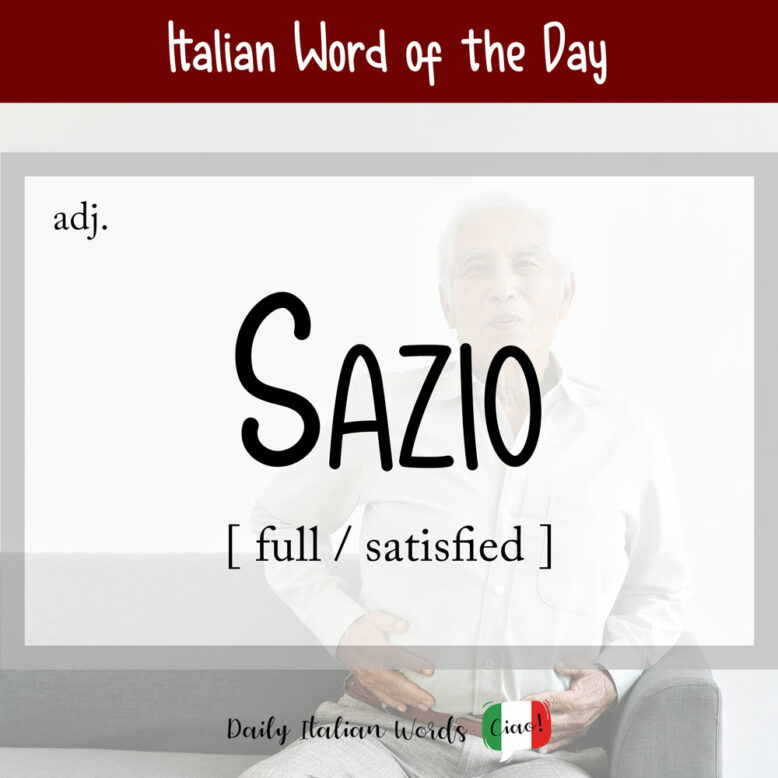In Italy, the polite way of saying that you are full is sazio after a meal if you are a man or sazia if you are a woman. (The respective plural forms are sazi and sazie.) It shares the same origin as the English words sate and satiated.

Che mangiata! Sono proprio sazio! Era tutto squisito!
What a meal! I’m really full! Everything was delicious!

Sazio ≠ pieno
Pieno is the Italian for full and can also describe the feeling of fullness after eating. In this case however, its meaning doesn’t extend beyond the physical state of feeling full. Sazio on the other hand implies that you enjoyed what you ate, and that you have satisfied your need for food completely.
Interestingly, the phrase sono pieno (I’m full) is considered impolite by many Italian families, especially when used in formal settings.
To be honest, we aren’t exactly sure why this is. One of the reasons could be that, by saying you are pieno, you are insinuating that you no longer wish to eat because you didn’t enjoy the food.
I also recall one Italian family telling me that you shouldn’t say sono pieno because it has a sexual connotation.
This being said, my Italian husband uses sono pieno a lot with his family and friends, and I’ve heard many people use it myself, so perhaps it is just a question of individual customs or habits. When in doubt though, use sazio to be on the safe side!
Sazio can also be used in a negative sense if your needs, wants or desires are satisfied to the point of annoyance or disgust. For example, if you take numerous luxury vacations in a short period of time, you might find yourself longing for some downtime at home, at which point you might say:
Sono sazio di tutti questi viaggi. Restiamo a casa per una volta!
I’m tired of all these trips! Let’s stay at home for once.
Two related verbs are saziare (to satisfy) and the reflexive saziarsi (to satisfy one’s appetite). Mai sazio and insaziabile both mean never full / insatiable, whereas a sazietà translates as to one’s fill. Insaziabile can also be used in a figurative way for something that can’t be appeased.

Heather Broster is a graduate with honours in linguistics from the University of Western Ontario. She is an aspiring polyglot, proficient in English and Italian, as well as Japanese, Welsh, and French to varying degrees of fluency. Originally from Toronto, Heather has resided in various countries, notably Italy for a period of six years. Her primary focus lies in the fields of language acquisition, education, and bilingual instruction.


